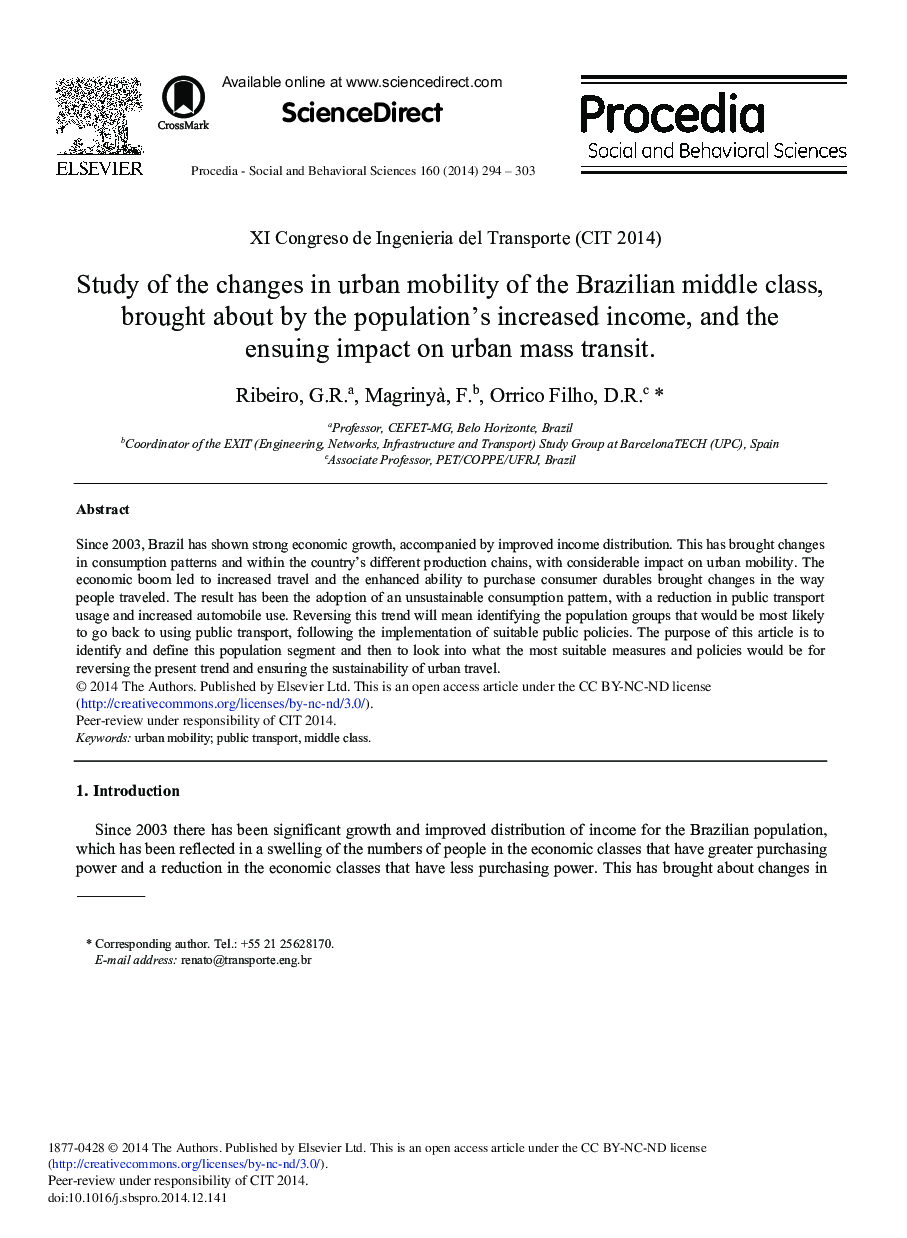| Article ID | Journal | Published Year | Pages | File Type |
|---|---|---|---|---|
| 1112189 | Procedia - Social and Behavioral Sciences | 2014 | 10 Pages |
Since 2003, Brazil has shown strong economic growth, accompanied by improved income distribution. This has brought changes in consumption patterns and within the country's different production chains, with considerable impact on urban mobility. The economic boom led to increased travel and the enhanced ability to purchase consumer durables brought changes in the way people traveled. The result has been the adoption of an unsustainable consumption pattern, with a reduction in public transport usage and increased automobile use. Reversing this trend will mean identifying the population groups that would be most likely to go back to using public transport, following the implementation of suitable public policies. The purpose of this article is to identify and define this population segment and then to look into what the most suitable measures and policies would be for reversing the present trend and ensuring the sustainability of urban travel.
